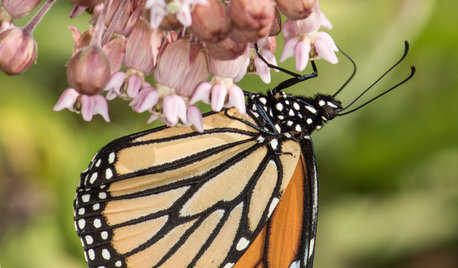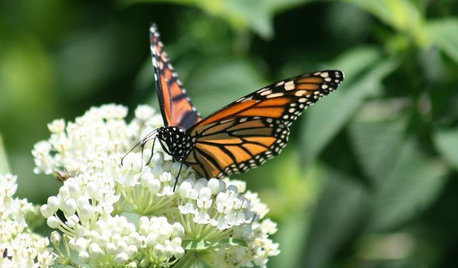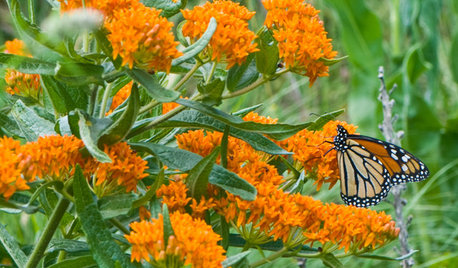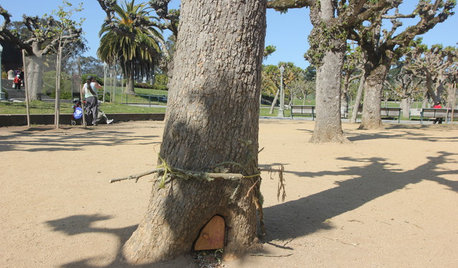where did all the milkweed go?
noticklish
12 years ago
Related Stories

FLOWERS AND PLANTSHelp Monarchs and Other Butterflies by Planting Common Milkweed
Summer-blooming Asclepias syriaca is an important larval host plant for the monarch butterfly and attracts a number of pollinating insects
Full Story
GARDENING GUIDESGreat Design Plant: Milkweed
Quit cringing. This not-weed plant is a sight to behold in the garden, has a delicious vanilla scent and is a magnet for butterflies
Full Story
GARDENING GUIDESGreat Design Plant: Butterfly Milkweed, a Beacon in the Prairie
Vivacious orange flowers for you, nectar for the butterflies and bees. Asclepias tuberosa is worth planting for more reasons than one
Full Story
ARCHITECTURERoots of Style: Where Did Your House Get Its Look?
Explore the role of architectural fashions in current designs through 5 home styles that bridge past and present
Full Story
GRAYGoing Greige: Tips for Choosing This All-Around Neutral
Here are some ways to highlight and complement your home with this elegant hybrid of gray and beige
Full Story
BUDGETING YOUR PROJECTHouzz Call: What Did Your Kitchen Renovation Teach You About Budgeting?
Cost is often the biggest shocker in a home renovation project. Share your wisdom to help your fellow Houzzers
Full Story
Let's Dish! Did You Watch the Flipping Out Premiere?
Contemporary Remodel Kicks off Design Show's New Season. What Did You Think?
Full Story
VALENTINE’S DAYTell Us: Why Did You Fall in Love With Your House?
What was it about your house that made your heart flutter? Share your photo, and it could make the Houzz homepage
Full Story
DISASTER PREP & RECOVERYRemodeling After Water Damage: Tips From a Homeowner Who Did It
Learn the crucial steps and coping mechanisms that can help when flooding strikes your home
Full Story
FUN HOUZZDid Elves Make a Home in a San Francisco Park?
Speculation has swirled around a Lilliputian doorway in Golden Gate Park. We give you the true story — and a design dilemma
Full StoryMore Discussions






cloud_9
terrene
Related Professionals
East Patchogue Landscape Architects & Landscape Designers · Arden-Arcade Landscape Contractors · Bridgeport Landscape Contractors · Brunswick Landscape Contractors · Golden Landscape Contractors · Las Vegas Landscape Contractors · Melrose Landscape Contractors · Oak Harbor Landscape Contractors · Vacaville Landscape Contractors · Waipahu Landscape Contractors · 07920 Landscape Contractors · Dayton Decks, Patios & Outdoor Enclosures · Larkspur Decks, Patios & Outdoor Enclosures · Markham Decks, Patios & Outdoor Enclosures · Rocklin Decks, Patios & Outdoor Enclosuresspedigrees z4VT
terrene
ctlady_gw
aeiger